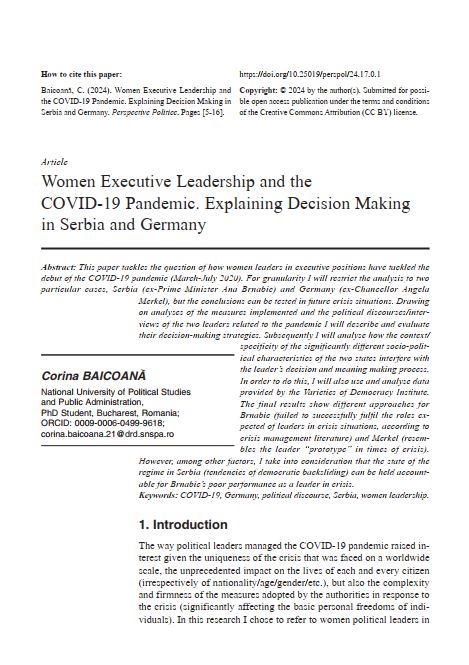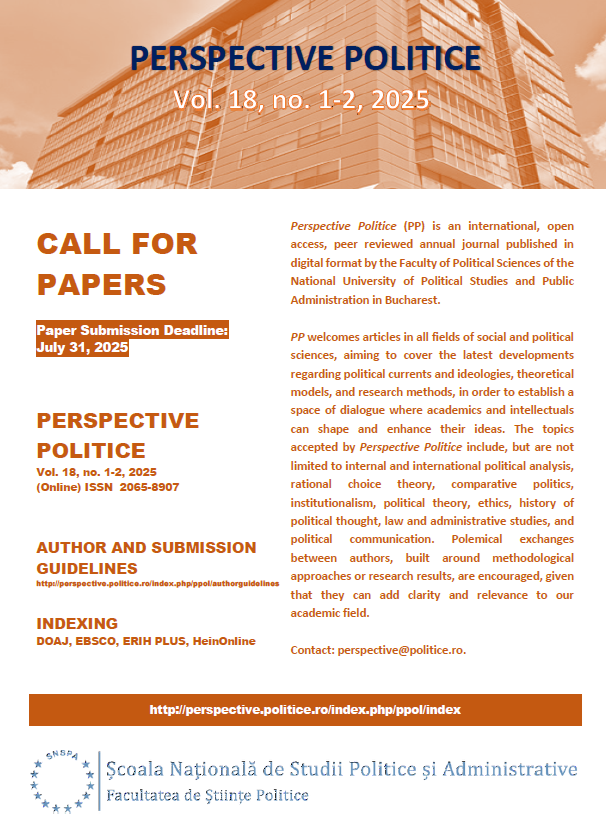Women Executive Leadership and the COVID-19 Pandemic. Explaining Decision Making in Serbia and Germany
Abstract
This paper tackles the question of how women leaders in executive positions have tackled the debut of the COVID-19 pandemic (March-July 2020). For granularity I will restrict the analysis to two particular cases, Serbia (ex-Prime Minister Ana Brnabic) and Germany (ex-Chancellor Angela Merkel), but the conclusions can be tested in future crisis situations. Drawing on analyses of the measures implemented and the political discourses/interviews of the two leaders related to the pandemic I will describe and evaluate their decision-making strategies. Subsequently I will analyse how the context/ specificity of the significantly different socio-political characteristics of the two states interfere with the leader’s decision and meaning making process. In order to do this, I will also use and analyse data provided by the Varieties of Democracy Institute. The final results show different approaches for Brnabic (failed to successfully fulfil the roles expected of leaders in crisis situations, according to crisis management literature) and Merkel (resembles the leader “prototype” in times of crisis).
However, among other factors, I take into consideration that the state of the regime in Serbia (tendencies of democratic backsliding) can be held accountable for Brnabic’s poor performance as a leader in crisis.

Downloads
Published
Issue
Section
License
Copyright (c) 2024 National University of Political Studies and Public Administration

This work is licensed under a Creative Commons Attribution-NonCommercial-ShareAlike 4.0 International License.



